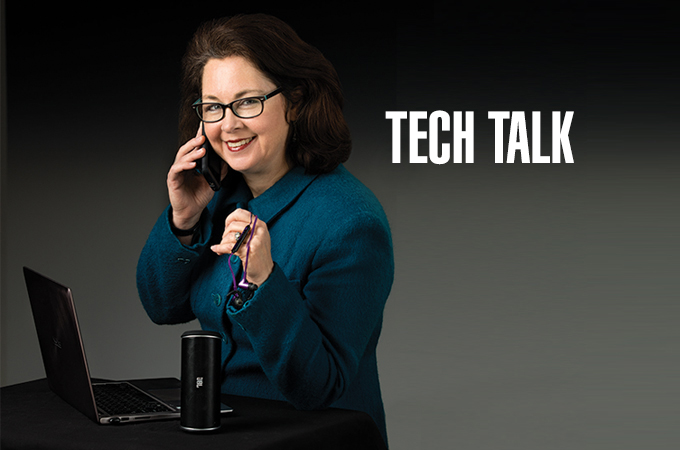In my quest to find motivation to lose some weight, I decided to get a fitness tracker. The problem was, I also wanted a smartwatch that had fitness tracking. What should have been a 15- minute buying decision turned into a three-week research project to find the right device for the job. There were too many conflicting factors: style, fitness tracking, size and functions were all important. The device I really wanted didn’t work with Fitbit, so I ended up getting the Fitbit Blaze. With so many options today, it is difficult to know just what is the right technology device for the job, so I decided to help readers sort it all out.
➧Desktops and Laptops: I frequently get emails asking me what type of computer someone should buy. The first question is, what are you going to do with the computer? Gaming and high-computing options are going to cost the most and typically come in desktop varieties. They tend to have the most processing power and high-end graphics cards. This is generally true for those who use their computers to stream video and watch movies. Most of the software tools people use for video editing or graphic design will have similar requirements.
If you are using business software like Microsoft Word, Excel, PowerPoint or QuickBooks, a medium-range computer will do the trick. One thing to consider is to make sure you get at least 8GB RAM (Random Access Memory) and consider getting a computer with a solid state disk drive. If you mainly use your computer to surf the Internet, send emails and occasionally watch a video, you could go with a Chromebook or cheaper computer.
➧Tablets: The line between tablets and laptops is starting to blur. If you are looking for a device that is easy to take to meetings and good for taking notes and accessing your calendar, then a tablet with a bluetooth keyboard will work. If you want to do those things in a meeting but still be able to create a Word document, edit an Excel spreadsheet or edit a photo, be sure your tablet has apps that can do those things. I mainly use my tablet (Asus Zenpad) to read books, surf the Internet and stream video. I don’t bother trying to use it for work because it will just frustrate me.
➧Smart devices: There is a plethora of computing devices that help us stay connected, manage our homes or manage ourselves. The smartphone (iPhone, Google Pixel or Samsung Galaxy) is the new remote control for other devices we can purchase. The smartwatch allows us to discreetly check our messages without being on our phone. We can manage our home with devices such as Amazon Alexa or Google Connect. I love my Roku and can’t imagine how I ever lived without it.
My recommendation is to think about what you plan to do with the device. Consider your expectations with regards to speed, screen quality, security, storage needs and software availability. Happy shopping!
check out: I now have Tablet envy for the Pixel C. store.google.com/product/pixel_c
try out: The Intel Compute Stick, a computer on a stick! intel.com/content/www/us/en/compute-stick/intelcompute-stick.html
Sheila Burkett is an information technology expert and CEO of Spry Digital, an interactive design agency delivering smart digital solutions. Follow Spry Digital on Twitter (@sprydigital), Facebook (facebook.com/SpryDigital), Instagram (@sprydigital) or LinkedIn (linkedin.com/company/spry-digital-llc).







